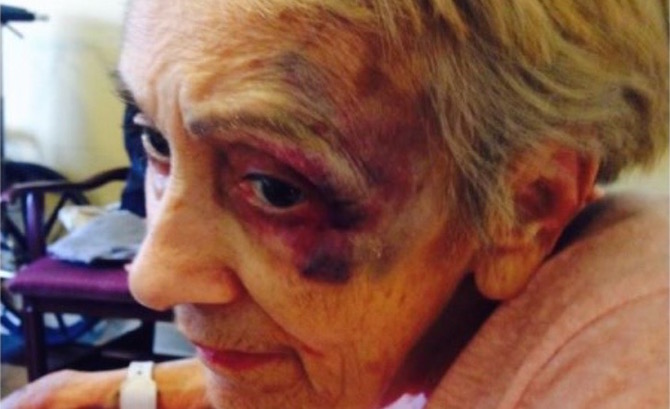Elder Abuse
Published (updated: ).

According to Georgia law (O.C.G.A. §30-5-4), healthcare providers are required to report any abuse (obvious or suspected) to law enforcement. This law stipulates that EMS are mandatory reporters of elder abuse. What is considered elder abuse is not always cut and dry, however there are typical types of abuse that can be seen by the ambulance crew:
- Neglect may include inadequate health care, education, supervision, protection from hazards in the environment, and unmet basic needs such as clothing and food.
- Physical abuse may include beating, shaking, burning, and biting. The threshold for defining corporal punishment as abuse is unclear. Rib fractures are found to be the most common finding associated with physical abuse.
- Psychological abuse includes verbal abuse, humiliation, and acts that scare or terrorize a patient.
- Sexual abuse – Non-consensual sexual contact of any kind with an elderly person
Nursing homes
Over 3.2 million adults living in nursing homes and other long term care facilities in the U.S. As many as 40 percent of all adults will enter a nursing home at some point during their lives and as the U.S. population ages, the number of nursing home residents is expected to grow. Many of these elders are well-cared for but many may be the victims of abuse.
Nursing home abuse is a serious concern and seniors who have been abused have a 300 percent greater chance of death in the 3 years following the abuse than those who aren’t abused. Up to 1 in 6 nursing home residents may be the victim of abuse or neglect every year.
Though many residents are well-cared for, abuse continues to be more prevalent than most people wish to believe and over three-fourths of the cases of nursing home abuse are perpetrated by caregivers.
Assessment
Ambulances aren’t typically dispatched to cases of elder abuse (that is more of a law enforcement matter). Ambulances are typically dispatched to a call where the patient or someone at location is sick or injured, and happen to come across a situation where the patient may be abused. If the medics have some suspicion that a elderly patient is being abused, they should request law enforcement to the scene to investigate. Also, relay any suspicions to staff at the ER, as they are also mandatory reporters as well. Law enforcement or the hospital staff may request adult protective services.
It is not the role of the ambulance crew to confront an abuser. The medics can help by keeping their eyes open. Listening for inconsistencies in explanations of injuries, measuring the caregiver’s behavior, and physical findings should move the index of suspicion toward abuse. The patient care report is a legal document that can be subpoenaed (requested for view by a judge). Ensure that any observations made by the ambulance crew are documented. Some medics worry that their lack of writing skills will not be helpful in a court of law, but these worries are unfounded. Attorney’s, judges, law enforcement have their own ways of documenting such issues, and when called to testify, the medic will be asked to explain in their own words what they wrote in the narrative of the patient care report.
